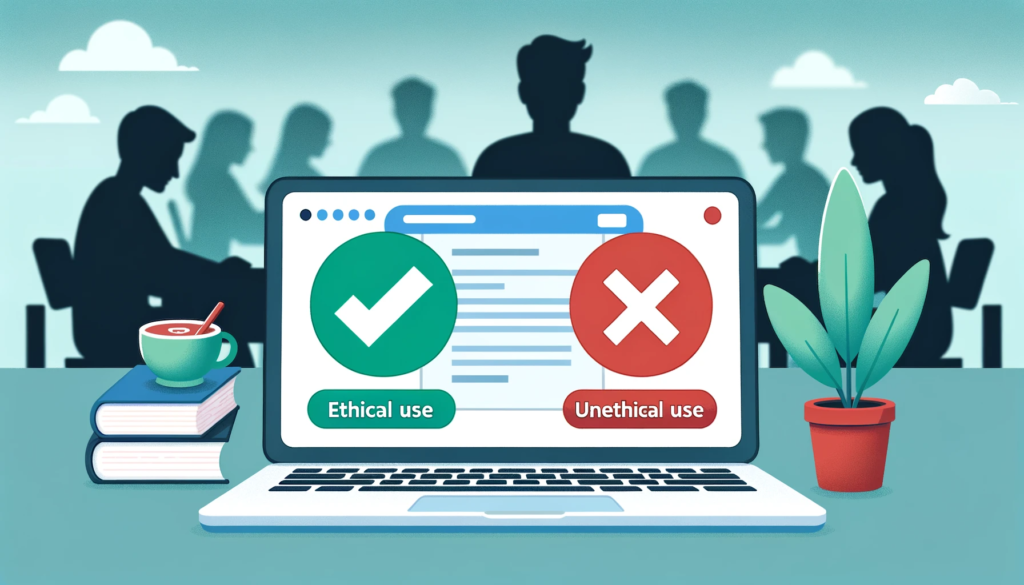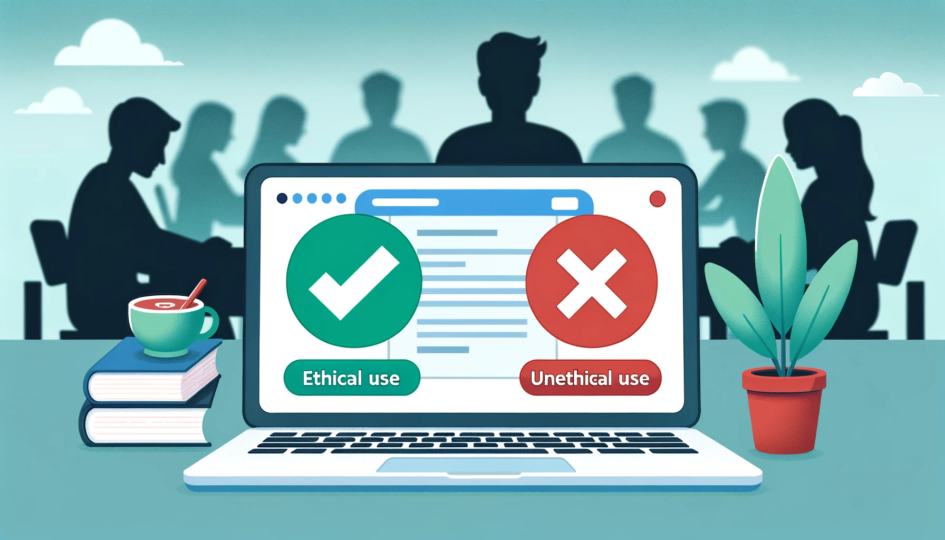
In the rapidly evolving world of education, technology plays a pivotal role. Among these technological advancements, AI-powered tools like ChatGPT have emerged as both an asset and a challenge in academic settings. As students, it’s important to understand how to use these tools ethically and effectively, especially in assessments. Here are some ways students can ethically use ChatGPT in their academic assessments.
By way of a disclaimer: if you are a student you must comply with your institution’s policies and rules regarding AI use or risk facing disciplinary action.
Idea Generation and Brainstorming
ChatGPT can be a great ally in the initial stages of an assignment. Use it to brainstorm ideas, explore different perspectives, or understand complex topics. It can provide a starting point for your research or essay. However, remember that the final idea and content have to be your own original work.
Understanding Difficult Concepts
Sometimes, textbooks or lectures might not be enough to grasp a challenging concept. ChatGPT can break down these complex ideas into simpler terms. Use it as a supplementary tool to enhance your understanding but ensure that your assignments reflect your comprehension and not just AI-generated explanations. You can paste text that you are having trouble understanding from your readings – and ask the AI to provide a summary or explanation of the text. Similarly, if you have too many sources to read through you can narrow your reading list by having the AI summarise texts for you so that you can determine which you should focus on.
Drafting Outlines
Creating an outline is a fundamental step in writing structured essays or reports. AI can assist in generating a basic outline based on your topic. Use this as a framework but fill it with your analysis, arguments, and insights.
You can use the AI as a critical friend by asking the AI to identify your topic sentence in a paragraph, to help ensure the focus of what you have written is actually where you had planned. Similarly, you can ask the AI to summarise what you have written and determine if you are saying what you thought you were.
Improving Language Skills
For non-native speakers, ChatGPT can be a valuable resource to improve language skills. You can learn new vocabulary, understand grammar better, and even practice writing. However, when it comes to assessments, ensure that the work you submit is in your voice.
Citation and Reference Help
ChatGPT can guide you in understanding different citation styles and how to reference sources properly. While it can provide examples, always cross-check with official guidelines and ensure your citations are accurate and complete.
Feedback on Drafts
You can use ChatGPT to get initial feedback on your drafts. It can help point out grammatical errors or inconsistencies in your writing. However, this feedback should be a starting point. If possible always seek human feedback, preferably from peers or educators, for a more nuanced review. You can ask the AI “Are there any clear grammatical errors in the text” and it’ll provide an analysis. Focus on the recommendations and don’t just copy AI text.
You can also ask ChatGPT to argue against points you have made in a paragraph which might help indicate any weaknesses in your arguments.
Understanding Ethical Implications
Engage with ChatGPT to learn about academic integrity and the ethical use of AI in education. Understanding the ethical implications will help you make informed decisions about how and when to use AI tools.
Collaborative Learning
In group projects, ChatGPT can be used for collaborative brainstorming or dividing tasks based on strengths. Ensure that all group members are aware of and agree with the extent of AI assistance being used.
Most Importantly
Don’t blindly trust AI-generated information AI does suffer from what has been termed hallucinations.
Don’t include anything in an essay that you haven’t checked yourself using traditional methods.
Remember you will be held responsible for anything you submit.
Remember you have a unique voice when you write don’t lose that by using AI,
Always disclose the use of AI tools to educators if their input has significantly influenced your work, you can do this by referencing the AI and explaining how you used it.
Use ChatGPT as a guide, not a substitute for your learning and creativity, otherwise you are just cheating yourself out of the education you are paying for.
ChatGPT and similar AI tools have the potential to enhance learning experiences. However, their ethical use hinges on understanding their limitations and ensuring they supplement rather than replace human effort and creativity. By following the above guidelines, students can navigate the academic landscape with integrity, making the most of what AI has to offer in a responsible manner.
You might also like:
Threat or Opportunity, Free GPT-AI and Higher Education
Effective assessment practices for a ChatGPT-enabled world
Image Credit: The feature image was created by ChatGPT using DALL·E 3.

Leave a Reply